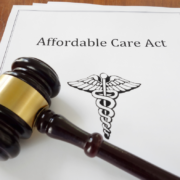Trump budget proposal would dismantle core health programs
Media Contact: Lisa McDonald, Vice President of Communications, 202-207-2829
Washington, DC – The National Consumers League (NCL) is raising serious concerns about the Trump administration’s proposal to cut the Department of Health and Human Services (HHS) budget by more than 30%. This drastic move would gut essential public health protections, weaken food safety, and threaten scientific progress.
“This budget is not a strategic approach to the reorganization of HHS; it is a slash-and-burn mentality for programs that everyday Americans rely on,” said NCL CEO Sally Greenberg. “Gutting vital agencies and drastically reducing funding for health care, research, and food safety will put millions of lives in danger—especially the most vulnerable. Especially following a mass layoff, these cuts appear extremely alarming and leave the functionality of programs like HRSA, CDC, FDA, and NIH up in the air.”
Key proposed cuts include:
- Health Resources and Services Administration (HRSA): Proposed cuts would eliminate this agency, which supports Medicare, Medicaid, and vital rural and community health programs, leaving millions without essential healthcare.
- National Institutes of Health (NIH): A 40% budget reduction, from $47 billion to $27 billion, threatens crucial research on diseases like cancer and Alzheimer’s, while new funding caps could hinder innovation at universities and research centers.
- Centers for Disease Control and Prevention (CDC): Budget cuts would slash the CDC’s funding from $9.2 billion to $5.2 billion, eliminating domestic HIV prevention, chronic disease programs, and research on obesity and heart disease.
- Food and Drug Administration (FDA): Shifting food safety oversight to state agencies without adequate resources could increase foodborne illness risks and erode public trust in food safety.
- Centers for Medicare and Medicaid Services (CMS): The proposed budget would not only shift the remaining Administration of Community Living programs under CMS but would also move the Office of Pharmacy Affairs from HRSA, allowing CMS to regulate the 340B drug pricing program.
The budget proposal comes in the wake of ongoing changes at HHS, including the recent dismissal of 10,000 employees. It comes as part of a larger effort to redefine the federal government’s role in healthcare and social services.
###
About the National Consumers League (NCL)
The National Consumers League, founded in 1899, is America’s pioneer consumer organization. Our mission is to protect and promote social and economic justice for consumers and workers in the United States and abroad. For more information, visit www.nclnet.org.
























